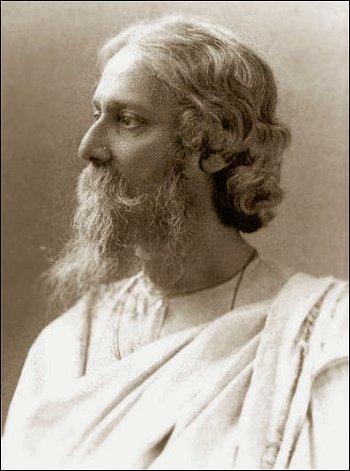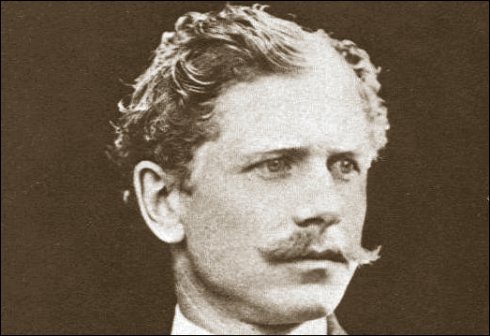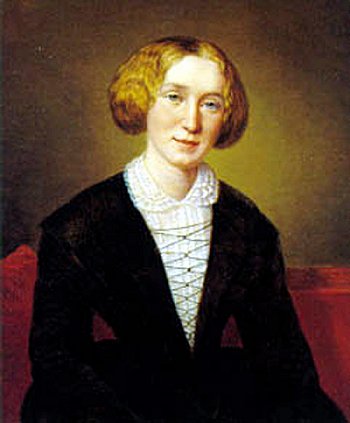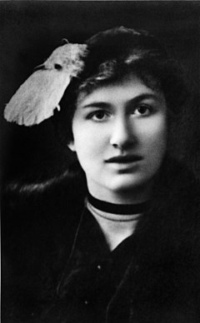Fleurs du Mal Magazine


Or see the index
.jpg)
William Shakespeare
(1564-1616)
THE SONNETS
56
Sweet love renew thy force, be it not said
Thy edge should blunter be than appetite,
Which but to-day by feeding is allayed,
To-morrow sharpened in his former might.
So love be thou, although to-day thou fill
Thy hungry eyes, even till they wink with fulness,
To-morrow see again, and do not kill
The spirit of love, with a perpetual dulness:
Let this sad interim like the ocean be
Which parts the shore, where two contracted new,
Come daily to the banks, that when they see:
Return of love, more blest may be the view.
Or call it winter, which being full of care,
Makes summer’s welcome, thrice more wished, more rare.
![]()
kempis poetry magazine
More in: -Shakespeare Sonnets

Rabindranath Tagore
(1861-1941)
Unending Love
I seem to have loved you in numberless forms, numberless times…
In life after life, in age after age, forever.
My spellbound heart has made and remade the necklace of songs,
That you take as a gift, wear round your neck in your many forms,
In life after life, in age after age, forever.
Whenever I hear old chronicles of love, it’s age-old pain,
It’s ancient tale of being apart or together.
As I stare on and on into the past, in the end you emerge,
Clad in the light of a pole-star piercing the darkness of time:
You become an image of what is remembered forever.
You and I have floated here on the stream that brings from the fount.
At the heart of time, love of one for another.
We have played along side millions of lovers, shared in the same
Shy sweetness of meeting, the same distressful tears of farewell-
Old love but in shapes that renew and renew forever.
Today it is heaped at your feet, it has found its end in you
The love of all man’s days both past and forever:
Universal joy, universal sorrow, universal life.
The memories of all loves merging with this one love of ours –
And the songs of every poet past and forever.
Rabindranath Tagore poetry
fleursdumal.nl magazine
More in: Archive S-T, Tagore, Rabindranath

Ambrose Bierce
(1842-1914?)
An Obituarian
Death-poet Pickering sat at his desk,
Wrapped in appropriate gloom;
His posture was pensive and picturesque,
Like a raven charming a tomb.
Enter a party a-drinking the cup
Of sorrow–and likewise of woe:
“Some harrowing poetry, Mister, whack up,
All wrote in the key of O.
“For the angels has called my old woman hence
From the strife (where she fit mighty free).
It’s a nickel a line? Cond–n the expense!
For wealth is now little to me.”
The Bard of Mortality looked him through
In the piercingest sort of a way:
“It is much to me though it’s little to you–
I’ve taken a wife to-day.”
So he twisted the tail of his mental cow
And made her give down her flow.
The grief of that bard was long-winded, somehow–
There was reams and reamses of woe.
The widower man which had buried his wife
Grew lily-like round each gill,
For she turned in her grave and came back to life–
Then he cruel ignored the bill!
Then Sorrow she opened her gates a-wide,
As likewise did also Woe,
And the death-poet’s song, as is heard inside,
Is sang in the key of O.
.jpg)
Ambrose Bierce poetry
fleursdumal.nl magazine
More in: Archive A-B, Bierce, Ambrose

George Eliot
(Mary Ann Evans, 1819 – 1880)
Day is dying
Day is dying! Float, o song,
Down the westward river,
Requiem chanting to the Day,
Day, the mighty giver!
Pierced by shafts of Time he bleeds,
Melted rubies sending
Through the river and the sky,
Earth and heaven blending.
All the long-drawn earthy banks
Up to cloudland lifting:
Slow between them drifts the swan
‘Twixt two heavens drifting,
Wings half open like a flower.
In by deeper flushing,
Neck and breast as virgin’s pure
Virgin proudly blushing.
Day is dying! Float, o swan,
Down the ruby river,
Follow, song, in requiem
To the mighty Giver!
.jpg)
George Eliot poetry
kempis.nl poetry magazine
More in: Eliot, George
.jpg)
Thuis
De ouderling dringt om het huis.
De dieren ze fluisteren duister.
Tierend een poot slaat uit,
de kater v erslindt een flapuit.
De ouderling zingt om het huis,
ruimbaan door de kleuren,
hij vlamt door de deuren.
De huiver ligt op het fornuis.
Eelke van Es ©
kempis.nl poetry magazine
More in: Es, Eelke van
.jpg)
Ton van Reen
Palaver
De mannen hurken onder de boom
hun geweren tussen hun benen geklemd
hun messen in de hand
de speren voor het grijpen
In hun midden de grootste krijger
hij heeft de meeste doden op zijn naam
aangetekend in de tatoeages op zijn rug
de boekhouding van zijn krijgersbestaan
Zes Karamojang heeft hij gedood
de dieven die de koeien terug kwamen stelen
die hij van hen had gestolen
Zijn hele leven staat in dienst van zijn eer
het recht is altijd op zijn hand
omdat hij weet dat alles op aarde van hem is
alle vee dat rondloopt heeft God aan hem gegeven
Hij geniet zo veel achting van de anderen
dat hij zijn stem kan uitbrengen door te zwijgen
hij hoeft maar even met het hoofd te knikken
om iedereen van zijn gelijk te overtuigen
hij hoeft maar met zijn ogen te knipperen
om de anderen te laten huiveren
De namen van de zes doden staan op zijn rug
zodat hijzelf hun initialen niet ziet
Ton van Reen: De naam van het mes. Afrikaanse gedichten
kempis.nl poetry magazine
More in: -De naam van het mes, Ton van Reen

Edith Södergran
(1892-1923)
At Nietzsche’s grave
Strange father!
Your children will not let you down,
they are coming across the earth with the footsteps of gods,
rubbing their eyes: where am I?
Vid Nietzsches grav
Den store jägaren är död…
Hans grav draperar jag med varma blomgardiner…
Kyssande den kalla stenen, säger jag:
här är ditt första barn i glädjetårar.
Gäckande sitter jag på din grav
såsom ett hån – skönare än du drömt dig.
Sällsamma fader!
Dina barn svika dig ej,
de komma över jorden med gudasteg,
gnuggande sig i ögonen: var är jag väl?
Nej, riktigt … här är min plats,
här är min faders förfallna grav…
Gudar – hållen evigt vakt på detta ställe.
(1918)
Edith Södergran poetry
kempis.nl poetry magazine
More in: Södergran, Edith

George Orwell
(1903-1950)
The Lesser Evil
Empty as death and slow as pain
The days went by on leaden feet;
And parson’s week had come again
As I walked down the little street.
Without, the weary doves were calling,
The sun burned on the banks of mud;
Within, old maids were caterwauling
A dismal tale of thorns and blood.
I thought of all the church bells ringing
In towns that Christian folks were in;
I heard the godly maidens singing;
I turned into the house of sin.
The house of sin was dark and mean,
With dying flowers round the door;
They spat their betel juice between
The rotten bamboos of the floor.
Why did I come, the woman cried,
so seldom to her beds of ease?
When I was not, her spirit died,
And would I give her ten rupees.
The weeks went by, and many a day
That black-haired woman did implore
Me as I hurried on my way
To come more often than before.
The days went by like dead leaves falling
And parson’s week came round again.
Once more devout old maids were bawling
Their ugly rhymes of death and pain.
The woman waited for me there
As down the little street I trod;
And musing upon her oily hair,
I turned into the house of God.
fleursdumal.nl magazine
More in: Archive O-P, Archive O-P, George Orwell, Orwell, George
.jpg)
William Shakespeare
(1564-1616)
THE SONNETS
55
Not marble, nor the gilded monuments
Of princes shall outlive this powerful rhyme,
But you shall shine more bright in these contents
Than unswept stone, besmeared with sluttish time.
When wasteful war shall statues overturn,
And broils root out the work of masonry,
Nor Mars his sword, nor war’s quick fire shall burn:
The living record of your memory.
‘Gainst death, and all-oblivious enmity
Shall you pace forth, your praise shall still find room,
Even in the eyes of all posterity
That wear this world out to the ending doom.
So till the judgment that your self arise,
You live in this, and dwell in lovers’ eyes.
![]()
kempis.nl poetry magazine
More in: -Shakespeare Sonnets
.jpg)
William Shakespeare
(1564-1616)
THE SONNETS
54
O how much more doth beauty beauteous seem,
By that sweet ornament which truth doth give!
The rose looks fair, but fairer we it deem
For that sweet odour, which doth in it live:
The canker blooms have full as deep a dye,
As the perfumed tincture of the roses,
Hang on such thorns, and play as wantonly,
When summer’s breath their masked buds discloses:
But for their virtue only is their show,
They live unwooed, and unrespected fade,
Die to themselves. Sweet roses do not so,
Of their sweet deaths, are sweetest odours made:
And so of you, beauteous and lovely youth,
When that shall vade, by verse distills your truth.
![]()
kempis poetry magazine
More in: -Shakespeare Sonnets
.jpg)
Aloysius Bertrand
(1807-1841)
Les gueux de nuit
– Ohé ! rangez-vous qu’on se chauffe ! – Il ne te manque
plus que d’enfourcher le foyer ! Ce drôle a les jambes
comme des pincettes.
– Une heure ! – Il bise dru ! – Savez-vous, mes chats-
huants, ce qui a fait la lune si claire ? – Non ! – Les
cornes de cocu qu’on y brûle.
– La rouge braise à griller de la charbonnée ! – Comme la
flamme danse bleue sur les tisons ! Ohé ! quel est le
ribaud qui a battu sa ribaude ?
– J’ai le nez gelé ! – J’ai les grêves rôties ! – Ne
vois-tu rien dans le feu, Choupille ? – Oui ! une halle-
barde. – Et toi, Jeanpoil ? – Un oeil.
– Place, place à monsieur de La Chousserie ! – Vous êtes
là, monsieur le procureur, chaudement fourré et ganté
pour l’hiver ! – Oui-dà ! les matous n’ont pas d’engelures !
– Ah ! voici messieurs du guet ! – Vos bottes fument.
– Et les tirelaines ? – Nous en avons tué deux d’une arque-
busade, les autres se sont échappés à travers la rivière.
*
Et c’est ainsi que s’acoquinaient à un feu de brandons,
avec des gueux de nuit, un procureur au parlement qui
courait le guilledou et les gascons du guet qui racontaient
sans rire les exploits de leurs arquebuses détraquées.
.jpg)
Aloysius Bertrand poetry
kempis.nl poetry magazine
More in: Archive A-B, Bertrand, Aloysius
.jpg)
Henry Wadsworth Longfellow
(1807-1882)
The Arrow and The Song
I shot an arrow into the air,
It fell to earth, I knew not where;
For, so swiftly it flew, the sight
Could not follow it in its flight.
I breathed a song into the air,
It fell to earth, I knew not where;
For who has sight so keen and strong,
That it can follow the flight of song?
Long, long afterward, in an oak
I found the arrow, still unbroke;
And the song, from beginning to end,
I found again in the heart of a friend.
.jpg)
H.W. Longfellow poetry
kempis.nl poetry magazine
More in: Archive K-L, Longfellow, Henry Wadsworth
Thank you for reading Fleurs du Mal - magazine for art & literature